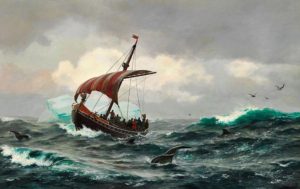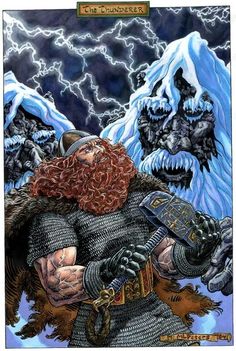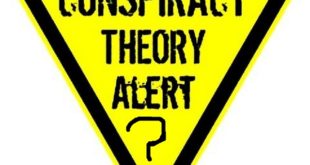 You may all have heard about a powerful barbaric race known as the Vikings, whether it be from history textbooks or the scintillating TV series by the same name. These pagans and barbarians inhabited the European regions of Scandinavia, Norway, Sweden and Denmark. They were a feared and ruthless people, who are known for their raw ferocity. Their feats of plunder and conquest were so notable and major in scale that the period between 793 and 1066 was named as the Viking Era.
You may all have heard about a powerful barbaric race known as the Vikings, whether it be from history textbooks or the scintillating TV series by the same name. These pagans and barbarians inhabited the European regions of Scandinavia, Norway, Sweden and Denmark. They were a feared and ruthless people, who are known for their raw ferocity. Their feats of plunder and conquest were so notable and major in scale that the period between 793 and 1066 was named as the Viking Era.
These barbarians were the wrathful force that caused havoc amongst the Christian nations of Europe. They were considered as beasts from hell, with such utter lawlessness and fierce perseverance that they defied some of the largest nations in Europe at that time. However, these sea-faring monsters have been misunderstood throughout history due to the fearsome image that has been attributed to them. They were much more than just mere barbarians; they were people who believed in freedom, novelty and honor. This fierce need for freedom and novelty can be seen in their form of government as well.
Tripped Out Fact: The Vikings are considered as the first people who discovered the continent of America, even before Columbus himself. The place known as Newfoundland is where the Vikings landed around the years of 1050 to 1060.
The Vikings were people who had a restless urge to explore unknown territories. This restless nature of the people was seen in the way in which they structured their society and their government as well. Firstly, there was no unified government like we see today, which allowed for a lot of independent choices. Each Viking village had periodic ritual meetings where the existing laws were taken into consideration and moulded to the according to the needs of the community. This means that the legal structures in society, such as societal structures, electing of “Earls” or chieftains, and other major decisions were all up for grabs. Yes, that’s right; each and every free man in the Viking society had the freedom to influence the law of the land.
There were chieftains or Earls who were in charge of taking care of the needs of an entire community. The needs of the community were mainly related to raiding, trading and of course, the glue that held Viking society together: gold. If an Earl was not able to provide for any of these elements, the community had the freedom to strip him of his titles and elect a new person. Moreover, the warrior Earls and chieftains of the Vikings were more than just mere soldiers. They were usually considered as the religious heads of the community as well. They were in charge of maintaining the belief system in the community and organised huge feasts in the great halls that are characteristic of this culture.
Tripped Out Fact: Archaeologists excavating in the regions of Scandinavia, Norway and Sweden, report finding numerous gold-plated wafers, whose functions are still debated today. However, a great number of scholars believe that these gold wafers, each with different symbols on them, represented modern day business cards which were used to identify famous families or individuals.
The religion of the Vikings, also known as the Nordic religion, had an immense role to play in the governance and overall functioning of their society as a whole. The Nordic religion had numerous Gods and talked about various realms that existed alongside the realm of humans. The religion of the Vikings itself had war and glory at the centre of it, where the Gods and the beings of the realms were in constant war with each. The Vikings even considered the seasons and other natural phenomena as a by-product of these inter-dimensional wars between the realms. Being a race driven by war and glory, the Viking society was structured and built around four basic traits: namely courage, loyalty, generosity, and honour. If any of these aspects were compromised in the community, there was sure to be a change in governance.
Now, if you look at the world around us, it is very easy to see that the ideals of courage, loyalty, generosity and honour have pretty much vanished. During the Viking era, exploration of new territories and sustainability of communities were the main areas of governance. On the other hand, in a world where convenience and affluence have gone over the roof, the concept of community and exploration has been replaced with a sense of blind servitude. Honour has given way to self-indulgence, where a man is proud of being a slave and willingly submits himself to the whims of those above him. In the world of today, the thirst for control and power has taken over the need for generosity and honour. The Vikings were barbarians who killed for freedom, exploration, and expansion. We are no different, except in some very crucial ways: we consider ourselves as civilised and sophisticated beings, even though we are worse barbarians than the Vikings.
It is amazing how throughout history there have been numerous instances which seem to resonate with our present scenario. One of these scenarios can be seen during the downfall of the Viking social structures near the years of 1065 and 1070. This has been attributed to the conversion of numerous Vikings from their religion to Christianity, the same religion that they spread havoc and pandemonium against. With the advent of Christianity, a religion which pledges the division of social structures into superior and inferior segments, the community structure of Viking society started to crumble and eventually fell. The advent of Christianity changed the four basic tenets of society and replaced them with elements that were much more senile and penitent. This slowly eroded away the Viking society and gave rise to power-hungry Christian kings within the Viking community who wanted to exact their superiority over other clans. Hence, a race which fought against each other before for necessities and pillage now started fights within themselves with the purpose of enslaving and ruling over one another.
Thus fell a warrior race that knew no bounds, and the seeds were sown for the rise of governance that was based on oppression rather than exploration and honour.
Image Sources: [1], [2], [3], [4]
Further Tripping…
 The Holy Connection An Alternative Exploration of Existence
The Holy Connection An Alternative Exploration of Existence






